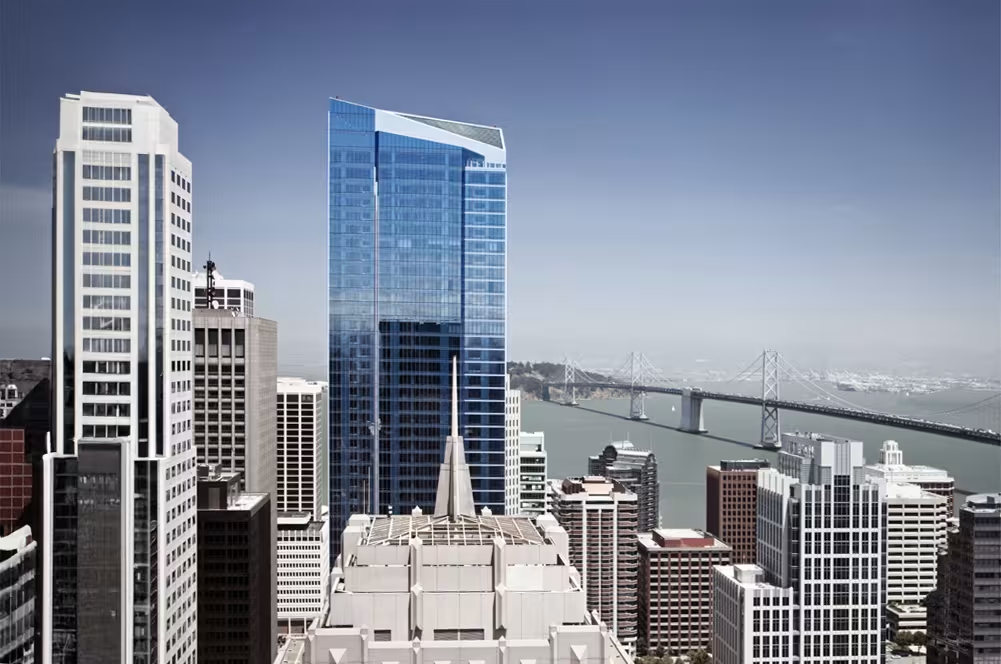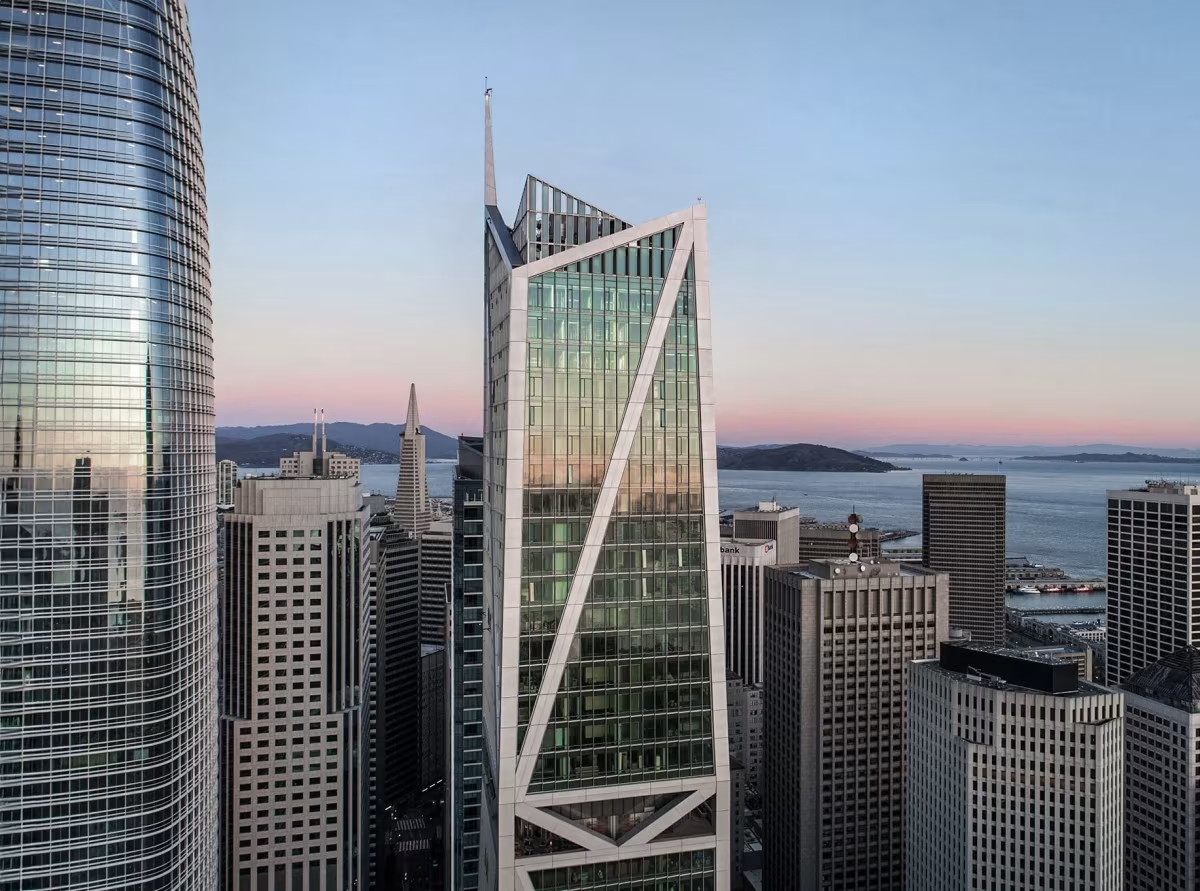Millennium Tower vs 181 Fremont Building


Comparing the Millennium Tower and the 181 Fremont Building is interesting because they both rise in San Francisco, CA, yet they were conceived by two different design teams, Handel Architects and Heller Manus Architects, and were completed at different points in time. They were finished more than 9 years apart.
This contrast within the same city allows us to see how different creative minds interpreted the evolving needs of San Francisco across time.
Let's take a closer look!
Height & Size
These two towers present an interesting contrast in their proportions. The 181 Fremont Building rises higher at 810ft (247m), while the Millennium Tower reaches 604ft (184m). However, the Millennium Tower accommodates more floors with 58 levels above ground, compared to 56 floors in the 181 Fremont Building.
This suggests different approaches to interior space design. The 181 Fremont Building has an average floor-to-floor height of approximately 4.4m, while the Millennium Tower has more compact floors averaging around 3.2m each. The taller building's more generous floor heights might indicate grander interior spaces, higher ceilings, or different programmatic requirements.
These different proportions likely reflect the specific needs each building was designed to serve, whether driven by zoning regulations, client requirements, or the intended use of the spaces within. The contrast shows how architects can achieve different spatial experiences even when working with similar overall building scales.
Architectural Style
Both the Millennium Tower and the 181 Fremont Building were designed in line with the aesthetic conventions of the Contemporary style.
At the time, this style was at the height of its popularity. So both Handel Architects and Heller Manus Architects followed what was in many ways expected of them, producing designs that fit comfortably within contemporary architectural norms, rather than breaking with convention.
Uses
The Millennium Tower is primarily residential, while the 181 Fremont Building is primarily commercial.
In terms of capacity, the Millennium Tower offers 419 apartments, while the 181 Fremont Building provides 55 units.
The Millennium Tower also provides 340 parking spaces.
Structure & Facade
The two towers rely on different structural systems, reflecting distinct engineering strategies.
The Millennium Tower uses a Frame structural system, which relies on a regular grid of columns and beams to sustain its weight, while the 181 Fremont Building uses a Trussed Tube In Tube system, that combines a central core with a perimeter tube reinforced by diagonal bracing.
Yet, when it comes to their facade, they both employed the same solution, a Curtain Wall facade.
A curtain wall is a non-load-bearing facade hung from the structural frame. It is anchored to floor slabs and transfers only its own weight and wind loads, allowing for sleek, glassy exteriors.
| Millennium Tower | 181 Fremont Building | |
|---|---|---|
| Handel Architects | Architect | Heller Manus Architects |
| 2005 | Construction Started | 2013 |
| 2009 | Year Completed | 2018 |
| Contemporary | Architectural Style | Contemporary |
| Residential | Current Use | Commercial |
| 58 | Floors Above Ground | 56 |
| 5 | Floors Below Ground | 5 |
| 180 | Last Floor Height | 209 |
| 184 m | Height (m) | 247 m |
| 197 | Tip Height | 250 |
| 12 | Number of Elevators | 17 |
| 419 | Residential Units | 55 |
| Frame | Structure Type | Trussed Tube In Tube |
| Concrete | Vertical Structure Material | Steel |
| Concrete | Horizontal Structure Material | Concrete |
| No | Facade Structural? | Yes |
| Glass, Metal | Main Facade Material | Glass |
| Webcor Builders | Main Contractor | Level 10 Construction |
| Mission Street Development, LLC | Developer | Jay Paul Commpany |
| DeSimone Consulting Engineers | Structural Engineer | Arup |
| CA | State | CA |
| San Francisco | City | San Francisco |
| 301 Mission Street | Address | 181 Fremont Street |